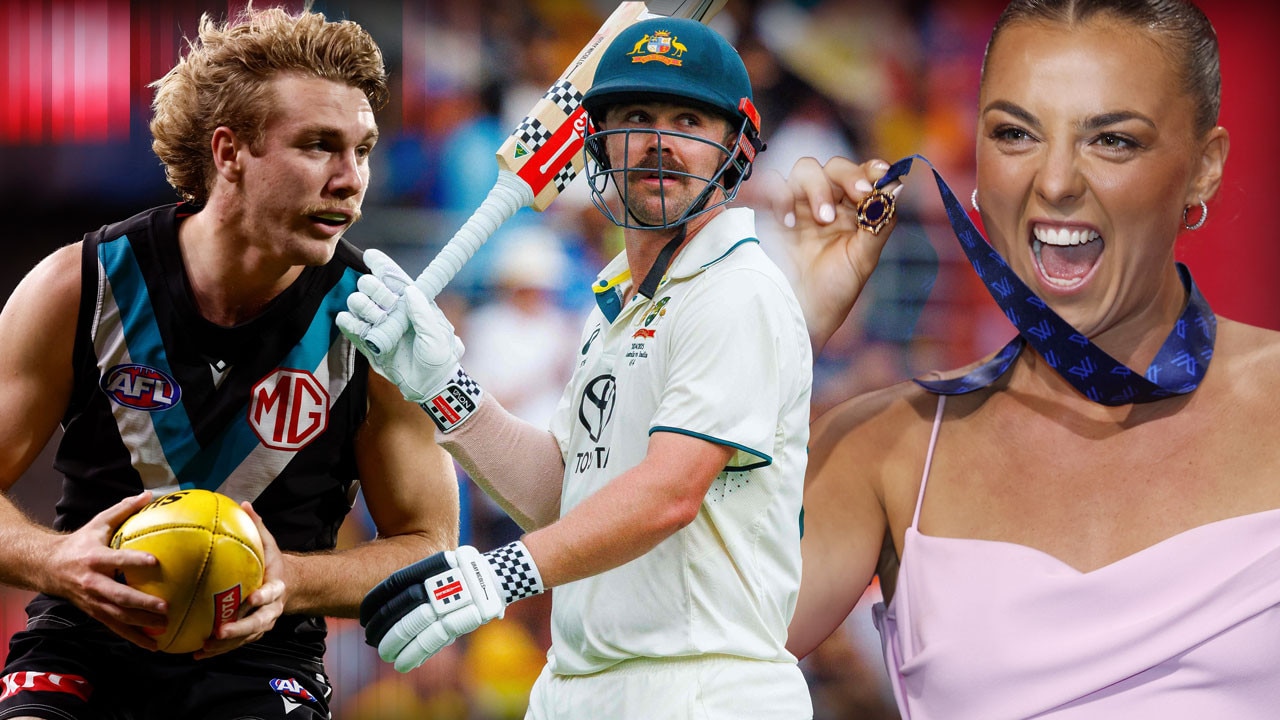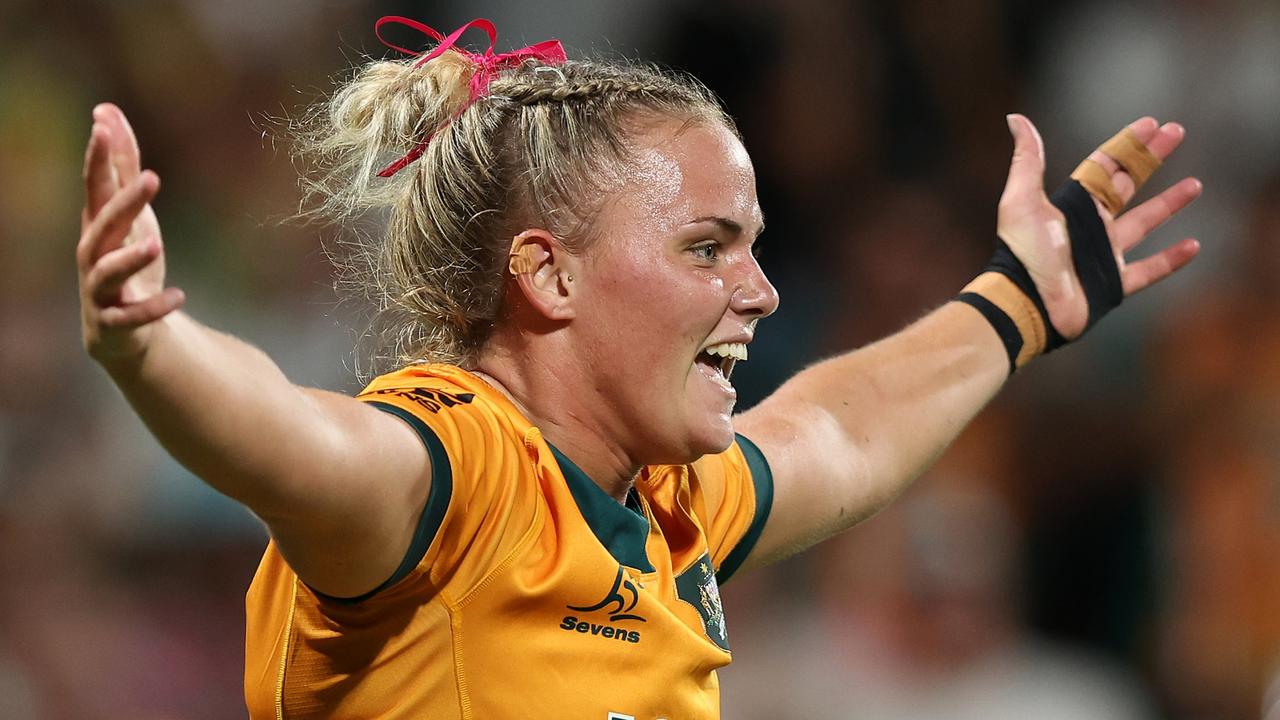Matildas star Chloe Logarzo opens up on the issues queer athletes face
Matildas star Chloe Logarzo has opened up on the issues that queer athletes face and why it took her a long time to be secure in herself. Read the exclusive column
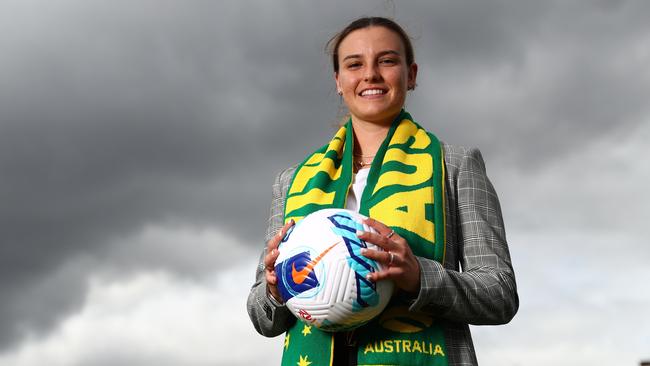
Women's sport
Don't miss out on the headlines from Women's sport. Followed categories will be added to My News.
Once you get labelled as a gay athlete, the biggest fear is that will be the only label you carry for the rest of your life.
One of the issues facing queer athletes is the belief they will be judged by their sexuality before they get judged for their sporting performance.
As individuals we go through that identity crisis process that we have to start believing in ourselves and that we are bringing something good to this world before we can safely talk about who we really are.
We sometimes suppress and put external pressure on ourselves instead of letting it all go and being like whoever likes this can be a part of it and whoever doesn’t shouldn’t be a part of my life.
It took me a long time to be secure in who I am to do that.
I stopped caring about what people thought and that simple change took away a lot of the mental strain of caring and wanting to fit in with society.
I want people to realise that if you are just your true authentic self you attract the people that you want to be around.
I want to be a person who can identify to be part of the queer community, but also I don’t want it to just be Chloe Logarzo the Australian player who is also gay.
MORE COVERAGE
Star slams bigots who claims ‘lesbians are predators’
Torture behind rugby star’s love: A family torn apart
Brazill: Why I feared being netball’s first gay player
Why Matilda waited 10 years to come out
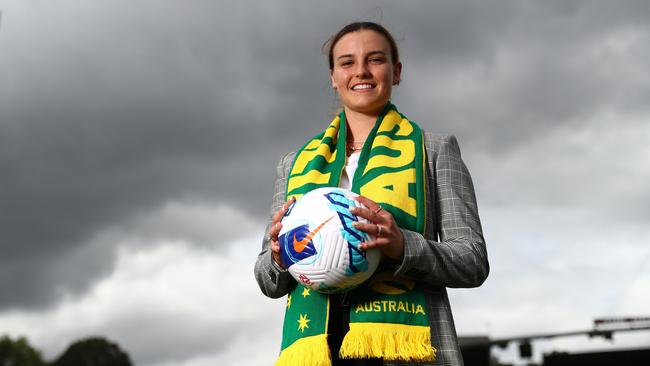
I don’t want that to always be part of the way the world sees me.
I want to be Chloe Logarzo the footballer.
And then sometimes I want to be Chloe Logarzo the queer person. I want to pick and choose.
And I know that sounds really silly but I want to be able to wear all the hats and wear them at the right time rather than people just making that my whole identity all of the time.
You can belong to different things and take on the responsibility of being elite athlete and a role model to the next generation, you can be a queer person helping someone through their identity crisis or educating others on Pride issues, or I can just be a woman helping out another person without a label attached to me.
The hardest part for any young person growing up is finding where you fit in this world and how you do good.
Your sexuality doesn’t impact whether or not you do good in this world.
When it comes to Pride issues, all I am working towards is making the world a safer and more comfortable place for every single person.
It doesn’t mean we have to shove it down everyone’s throat.
If you don’t want to wear Pride colours and don’t want to support it, you have a right to do whatever you want.
MORE COVERAGE
Olympic champ: I didn’t feel safe saying I was gay
Opals legend: Being gay cost me a World Cup spot
Homophobia rife in sport: Why would male stars come out?
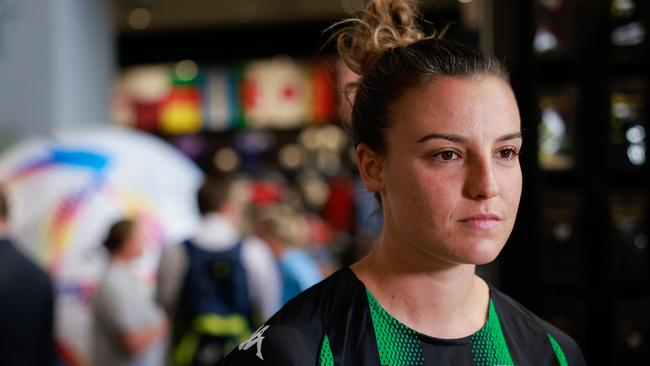
But I do want there to be more understanding of what we’re trying to achieve and how we’re trying to change the landscape of not just women’s sport but sport in general.
The A-League has been great at including an educational seminar around why they’re participating in Pride round.
You can’t just put Pride colours on a jersey and say you’re supporting the issue — there needs to be education around it for everyone.
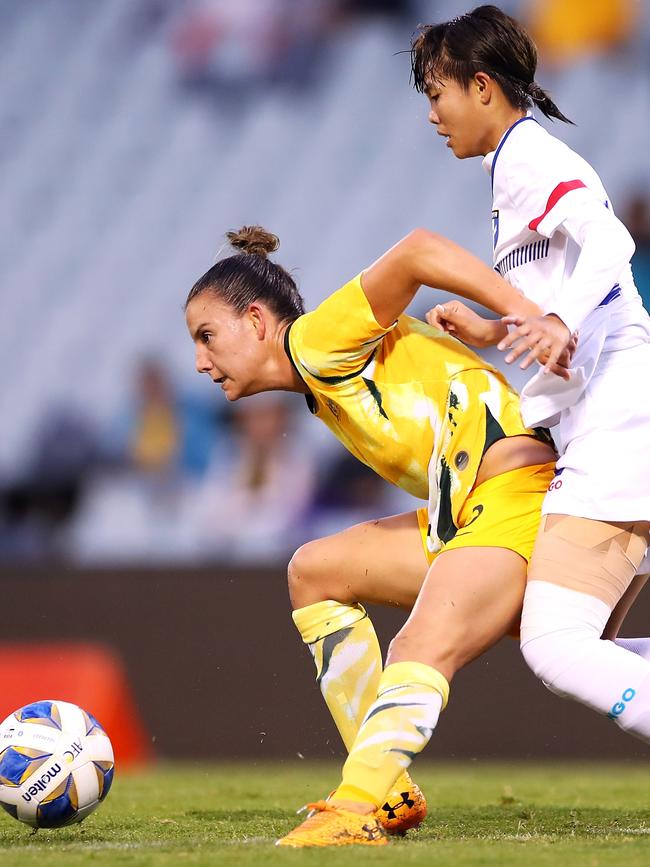
Pride is not about indoctrinating people to come and be part of the queer community, this is more about having an understanding that whoever or whatever walks in life you are, that whenever you are participating in a sport or being a spectator that you are accepted and feel safe coming into this environment.
There will be no bigger moment for that than at this year’s FIFA women’s World Cup in Australia.
I think the Matildas and women’s sport in general have already made leaps and bounds in terms of inclusion and I would love to see this tournament be the catalyst for everyone to understand we can all come together, love our sport and be accepting of one another in the same safe environment.
It is going to be the best women’s World Cup ever.
Originally published as Matildas star Chloe Logarzo opens up on the issues queer athletes face

